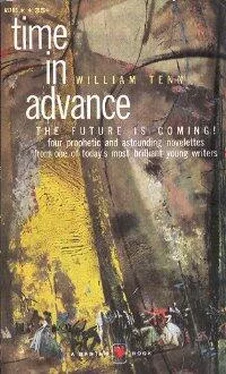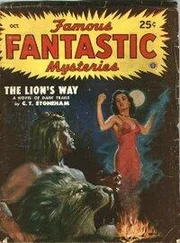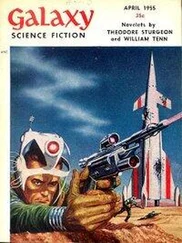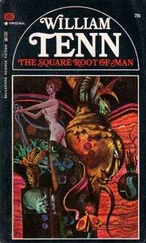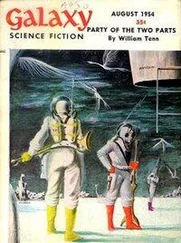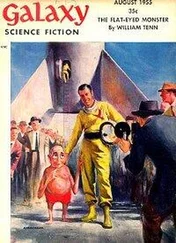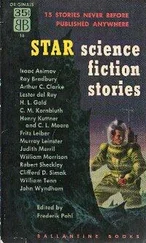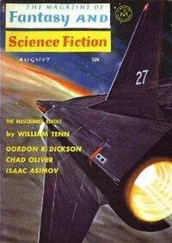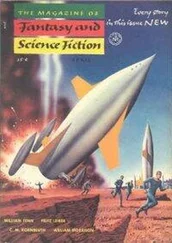William Tenn - The Sickness
Здесь есть возможность читать онлайн «William Tenn - The Sickness» весь текст электронной книги совершенно бесплатно (целиком полную версию без сокращений). В некоторых случаях можно слушать аудио, скачать через торрент в формате fb2 и присутствует краткое содержание. Год выпуска: 1955, Издательство: Royal Publications, Жанр: Фантастика и фэнтези, на английском языке. Описание произведения, (предисловие) а так же отзывы посетителей доступны на портале библиотеки ЛибКат.
- Название:The Sickness
- Автор:
- Издательство:Royal Publications
- Жанр:
- Год:1955
- ISBN:нет данных
- Рейтинг книги:5 / 5. Голосов: 1
-
Избранное:Добавить в избранное
- Отзывы:
-
Ваша оценка:
- 100
- 1
- 2
- 3
- 4
- 5
The Sickness: краткое содержание, описание и аннотация
Предлагаем к чтению аннотацию, описание, краткое содержание или предисловие (зависит от того, что написал сам автор книги «The Sickness»). Если вы не нашли необходимую информацию о книге — напишите в комментариях, мы постараемся отыскать её.
magazine in 1955.
The Sickness — читать онлайн бесплатно полную книгу (весь текст) целиком
Ниже представлен текст книги, разбитый по страницам. Система сохранения места последней прочитанной страницы, позволяет с удобством читать онлайн бесплатно книгу «The Sickness», без необходимости каждый раз заново искать на чём Вы остановились. Поставьте закладку, и сможете в любой момент перейти на страницу, на которой закончили чтение.
Интервал:
Закладка:
So Nicolai Belov, who had a talent for chess as natural and as massive as the one Sarah Bernhardt had for the theater, got a special and ever-renewing pleasure out of beating a man who had barely made the college team. And Tom Smathers nursed a constant feeling of inferiority that was ready to grow into adult, belligerent status on any pretext it could find.
It was ridiculous, O’Brien felt. But then, he couldn’t know: he had the long end of the stick. It was easy, far him.
Ridiculous? As ridiculous as six cobalt bombs. One, two, three, four, five, six—and boom!
Maybe, he thought, maybe the answer was that they were a ridiculous species. Well. They would soon be gone, gone with the dinosaurs.
And the Martians.
“I can’t wait to get a look at those pictures Belov took,” he told Smathers, trying to change the subject to a neutral, non-argumentative level. “Imagine human beings walking around on this blob of desert, building cities, making love, investigating scientific phenomena—a million years ago!”
The second assistant engineer, wrist deep in a tangle of wiring, merely grunted as a sign that he refused to let his imagination get into the bad company that he considered all matters connected with Belov.
O’Brien persisted. “Where did they go—the Martians, I mean? If they were that advanced, that long ago, they must have developed space travel and found some more desirable real estate to live on. Do you think they visited Earth, Tom?”
“Yeah. And they’re all buried in Red Square.”
You couldn’t do anything against that much bad temper, O’Brien decided; he might as well drop it. Smathers was still smarting over Belov’s eagerness to play the navigator on even terms.
But all the same, he kept looking forward to the photographs. And when they went down to lunch, in the big room at the center of the ship, that served as combinaton dormitory, mess hall, recreation room, and storage area, the first man he looked for was Belov.
Belov wasn’t there.
“He’s up in the hospital room with the doctor,” Layatinsky, his tablemate, said heavily, gravely. “He doesn’t feel well. Schneider’s examining him.”
“That headache get worse?”
Layatinsky nodded. “A lot worse—and fast. And then he got pains in his joints. Feverish too. Guranin says it sounds Iike meningitis.”
“Ouch!” Living as closely together as they did, something like meningitis would spread through their ranks like ink through a blotter. Although, Guranin was an engineer, not a doctor. What did be know about it, where did he come off making a diagnosis?
And then O’Brien noticed it. The mess-hall was unusually quiet, the men eating with their eyes on their plates as Kolevitch dished out the food—a little sullenly, true, but that was probably because after preparing the meal, he was annoyed at having to serve it, too, since the K.P. for lunch, Dr. Alvin Schneider, had abruptly been called to more pressing business.
But whereas the Americans were merely quiet, the Russians were funereal. Their faces were as set and strained as if they were waiting to be shot. They were all breathing heavily, the kind of slow, snorting breaths that go with great worry over extremely difficult problems.
Of course. If Belov were really sick, if Belov went out of action, that put them at a serious disadvantage relative to the Americans. It cut their strength almost fifteen per cent. In case of a real razzle between the two groups …
Therefore, Guranin’s amateur diagnosis should be read as a determined attempt at optimism. Yes, optimism! If it was meningitis and thus highly contagious, others were likely to pick it up, and those others could just as well be Americans as Russians. That way, the imbalance could be redressed.
O’Brien shivered. What kind of lunacy—
But then, he realized, if it had been an American, instead of a Russian, who had been taken real sick and was up there in the hospital at the moment, his mind would have been running along the same track as Guranin’s. Meningitis would have seemed like something to hope for desperately.
Captain Chose climbed down into the mess hall. His eyes seemed darker and smaller than ever.
“Listen, men. As soon as you’ve finished eating, report up to the control room which, until further notice, will serve as an annex to the hospital.”
“What for, Captain?” someone asked. “What do we report for?”
“Precautionary injections.”
There was a silence. Chose started out of the place. Then the chief engineer cleared his throat.
“How is Belov?”
The captain paused for a moment, without turning around. “We don’t know yet. And if you’re going to ask me what’s the matter with him, we don’t know that yet either.”
They waited in a long, silent, thoughtful line outside the control room, entering and leaving it one by one. O’Brien’s turn came.
He walked in, baring his right arm, as he had been ordered. At the far end, Ghose was staring out of the porthole as if he were waiting for a relief expedition to arrive. The navigation desk was covered with cotton swabs, beakers filled with alcohol, and small bottles of cloudy fluid.
“What’s this stuff, Doc?” O’Brien asked when the injection had been completed and he was allowed to roll down his sleeve.
“Duoplexin. The new antibiotic that the Australians developed last year. Its therapeutic value hasn’t been completely validated, but it’s the closest thing to a general cureall that medicine’s come up with. I hate to use anything so questionable, but before we lifted from Benares, I was told to shoot you fellows full of it if any off-beat symptoms showed up.”
“Guranin says it sounds like meningitis,” the navigator suggested.
“It isn’t meningitis.”
O’Brien waited a moment, but the doctor was filling a new hypodermic and seemed indisposed to comment further. He addressed Ghose’s back. “How about those pictures that Belov took? They been developed yet? I’d like to see them.”
The captain turned away from the porthole and walked around the control room with his hands clasped behind his back. “All of Belov’s gear.” he said in a low voice, “is under quarantine in the hospital along with Belov. Those are the doctor’s orders.”
“Oh. Too bad.” O’Brien felt he should leave, but curiosity kept him talking. There was something these men were worried about that was bigger even than the fear niggling the Russians. “He told me over the radio that the Martians had been distinctly humanoid. Amazing, isn’t it? Talk about parallel evolution!”
Schneider set the hypodermic down carefully. “Parallel evolution,” he muttered. “Parallel evolution and parallel pathology. Although it doesn’t seem to act quite like any terrestrial bug. Parallel susceptibility, though. That you could say definitely.”
“You mean you think Belov has picked up a Martian disease?” O’Brien let the concept careen through his mind. “But that city was so old. No germ could survive anywhere near that long!”
The little doctor thumped his small paunch decisively. “We have no reason to believe it couldn’t. Some germs we know of on Earth might be able to. As spores—in any one of a number of ways.”
“But if Belov—”
“That’s enough,” the captain said. “Doctor, you shouldn’t think out loud. Keep your mouth shut about this, O’Brien, until we decide to make a general announcement. Next man!” he called.
Tom Smathers came in. “Hey, Doc,” he said, “I don’t know if this is important, but I’ve begun to generate the lousiest headache of my entire life.”
The other three men stared at each other. Then Schneider plucked a thermometer out of his breast pocket and put it into Smathers’s mouth, whispering an indistinct curse as he did so. O’Brien took a deep breath and left.
Читать дальшеИнтервал:
Закладка:
Похожие книги на «The Sickness»
Представляем Вашему вниманию похожие книги на «The Sickness» списком для выбора. Мы отобрали схожую по названию и смыслу литературу в надежде предоставить читателям больше вариантов отыскать новые, интересные, ещё непрочитанные произведения.
Обсуждение, отзывы о книге «The Sickness» и просто собственные мнения читателей. Оставьте ваши комментарии, напишите, что Вы думаете о произведении, его смысле или главных героях. Укажите что конкретно понравилось, а что нет, и почему Вы так считаете.
